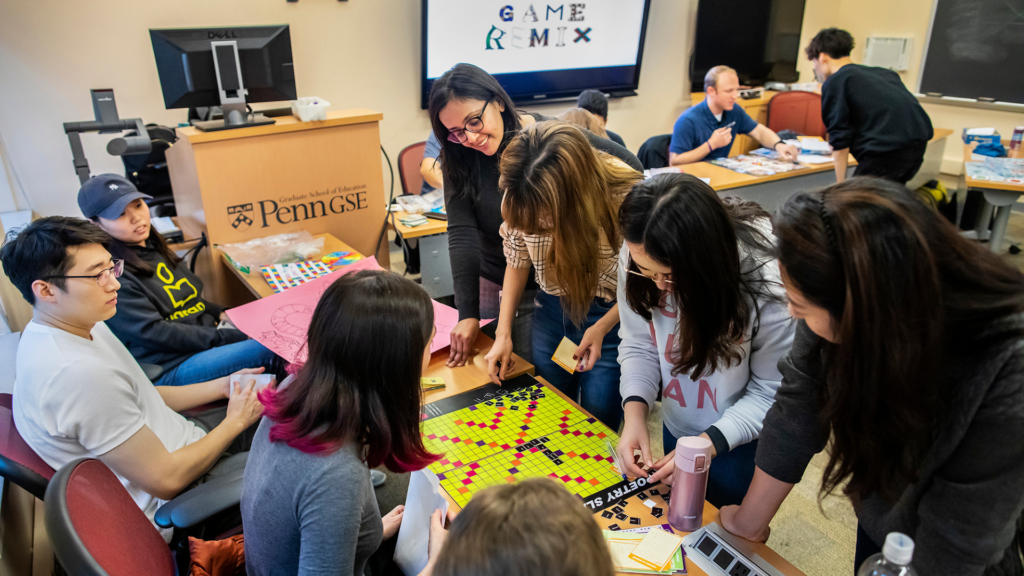Kids’ Card Games: A Gateway to Fun Learning and Family Bonding

Card games have been a timeless source of entertainment, and their popularity among kids is unwavering. In this article, we’ll delve into the myriad benefits of kids playing card games, explore popular game options, and provide insights into how these games contribute to education and family bonding.Kids’ fascination with card games goes beyond mere amusement; it’s a gateway to a world of learning and social interaction. As technology dominates recreational activities, the simplicity and versatility of card games offer a refreshing alternative for children of all ages.
Benefits of Kids‘ Card Games

Development of Cognitive Skills
Card games are not just about luck; they involve strategic thinking, memory, and decision-making. As children engage in these games, they unknowingly enhance their cognitive abilities, laying a foundation for academic success.
Enhancing Social Skills through Interaction
In an era dominated by screens, card games bring kids face-to-face, fostering essential social skills. Communication, cooperation, and sportsmanship develop naturally in the friendly competition of a card game.
Introduction to Basic Math Concepts
Counting cards, calculating scores, and understanding game rules all contribute to a subtle introduction to fundamental math concepts. Card games make learning math enjoyable and practical.
Popular Kids‘ Card Games
Go Fish
A classic card game that teaches matching and memory skills. It’s easy for younger kids to grasp, making it a perfect entry point into the world of card games.
Crazy Eights
A game of strategy and luck where players aim to be the first to get rid of their cards. It encourages quick thinking and decision-making.
Uno
A colorful and dynamic game that combines numbers and colors, promoting both math and strategic thinking.
Old Maid
An amusing game that helps with visual discrimination and memory as players try to form pairs and avoid being left with the Old Maid card.
Educational Aspects

Card games can be more than just entertainment; they can be educational tools cleverly disguised as fun.
Integration of Learning into Game Formats
Many card games are designed with educational elements, seamlessly incorporating learning into playtime.
Examples of Educational Card Games
Games like “Math Bingo” and “Word Flash” turn traditional card games into valuable learning experiences.
Social Interaction
Importance of Face-to-Face Interaction in the Digital Age
Card games bring kids together, promoting eye contact, active listening, and genuine human connection, crucial in an increasingly digital world.
Building Friendships and Teamwork through Card Games
Whether it’s forming alliances or strategizing together, card games teach kids the value of teamwork and cooperation.
Tips for Introducing Card Games to Kids
Age-Appropriate Game Selection
Choosing games suitable for the child’s age ensures engagement and enjoyment without frustration.
Simplifying Rules for Younger Children
Adapting game rules for younger players keeps them involved and fosters a positive gaming experience.
Setting Up a Designated Game Time
Establishing a routine for card games creates anticipation and makes it a cherished family activity.
Family Bonding

How Card Games Create Opportunities for Family Bonding
A deck of cards can bridge generation gaps, providing a shared activity where family members of all ages can participate.
Multi-Generational Appeal of Card Games
From grandparents to grandchildren, card games offer a common ground that transcends age differences.
Card Games for Educational Themes
Incorporating Learning Themes into Card Games
From history to science, card games can be adapted to teach various subjects, making learning enjoyable.
Examples of Educational Themes
“Science Snap” and “History Rummy” are examples of card games that infuse educational themes seamlessly.
Creativity and Imagination
Encouraging Creativity through Card Games
Card games often involve storytelling and imaginative play, fostering creativity in a structured and enjoyable manner.
Storytelling and Role-Playing within the Games
Games like “Story Card Shuffle” encourage players to create stories based on the cards they draw, enhancing imaginative thinking.
Overcoming Challenges
Dealing with Losing and Winning Gracefully
Card games teach valuable life lessons, including how to handle success and failure with grace and sportsmanship.
Managing Screen Time and Promoting Offline Activities
In a world dominated by screens, card games provide a screen-free alternative, promoting healthy, offline recreation.
The Evolution of Card Games
How Traditional Card Games Have Evolved
From classic games to modern adaptations and apps, the world of card games is constantly evolving to meet the interests of today’s tech-savvy generation.
Introduction to Modern Variations and Apps
Apps like “Cardify Learning” combine traditional card game concepts with modern technology, creating a blend of the old and the new.
DIY Card Games
Creating Custom Card Games for Family Fun
Crafting personalized cards for a unique family game night adds a personal touch to the gaming experience.
Materials and Steps for Crafting Personalized Cards
Simple materials like cardstock, markers, and creativity are all that’s needed to create a one-of-a-kind card game.
Card Games for Different Age Groups

Adapting Games for Various Age Levels
Modifying game rules and complexity ensures that card games remain enjoyable for kids of all ages.
Ensuring Inclusivity in Family Game Nights
Choosing games that cater to different age groups guarantees that everyone in the family can participate and have fun.
Educational Experts’ Perspectives
Insights from Educators on the Benefits of Card Games
Educators recognize the value of card games in enhancing various skills and often recommend their integration into educational settings.
Incorporating Card Games into Formal Education
Schools are increasingly incorporating card games into lesson plans to make learning more interactive and enjoyable.
Conclusion
In conclusion, introducing kids to card games is not just about entertainment; it’s a strategic investment in their cognitive, social, and educational development. The simplicity of a deck of cards can create lasting memories, strengthen family bonds, and provide a platform for wholesome fun and learning.


